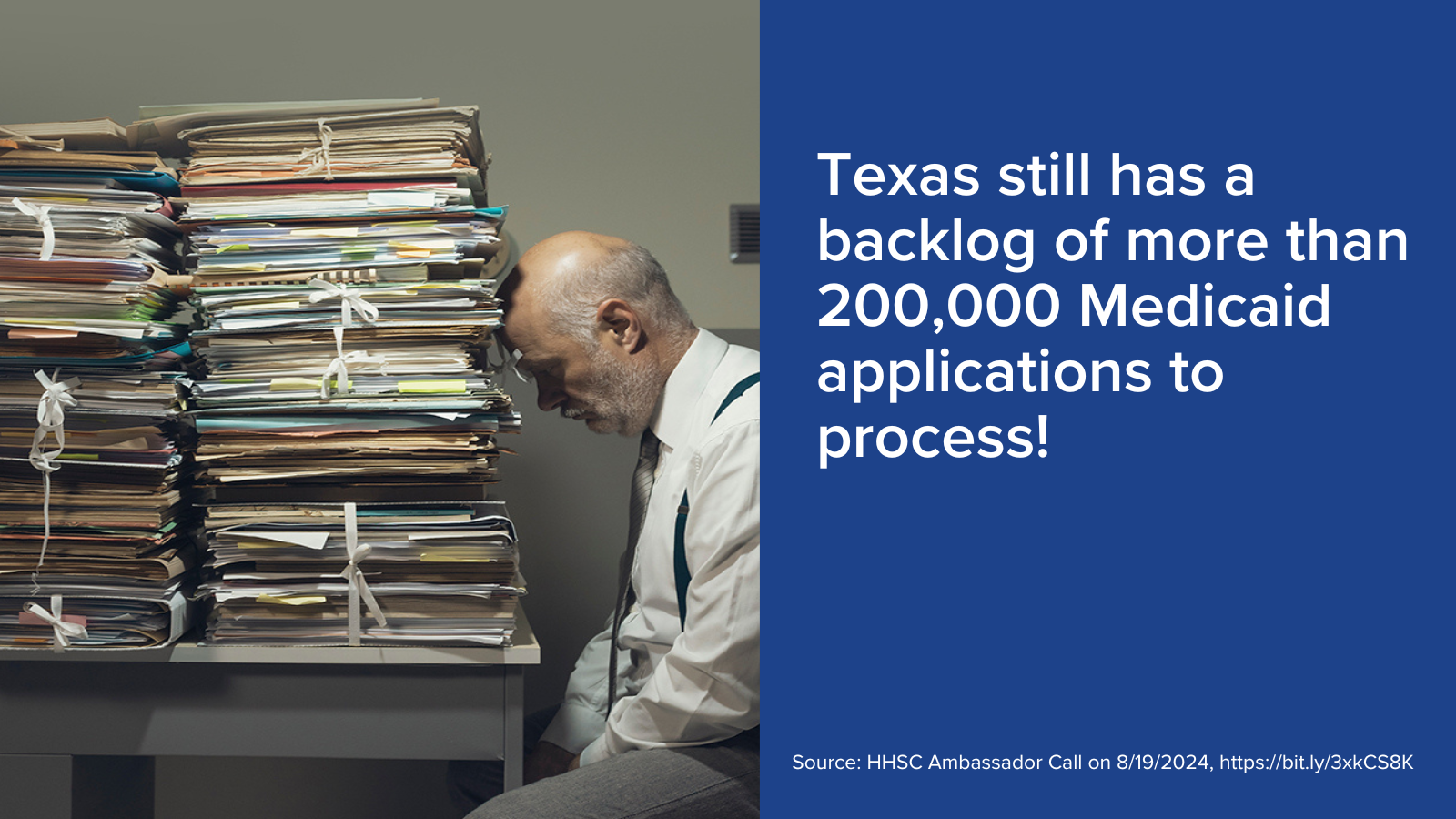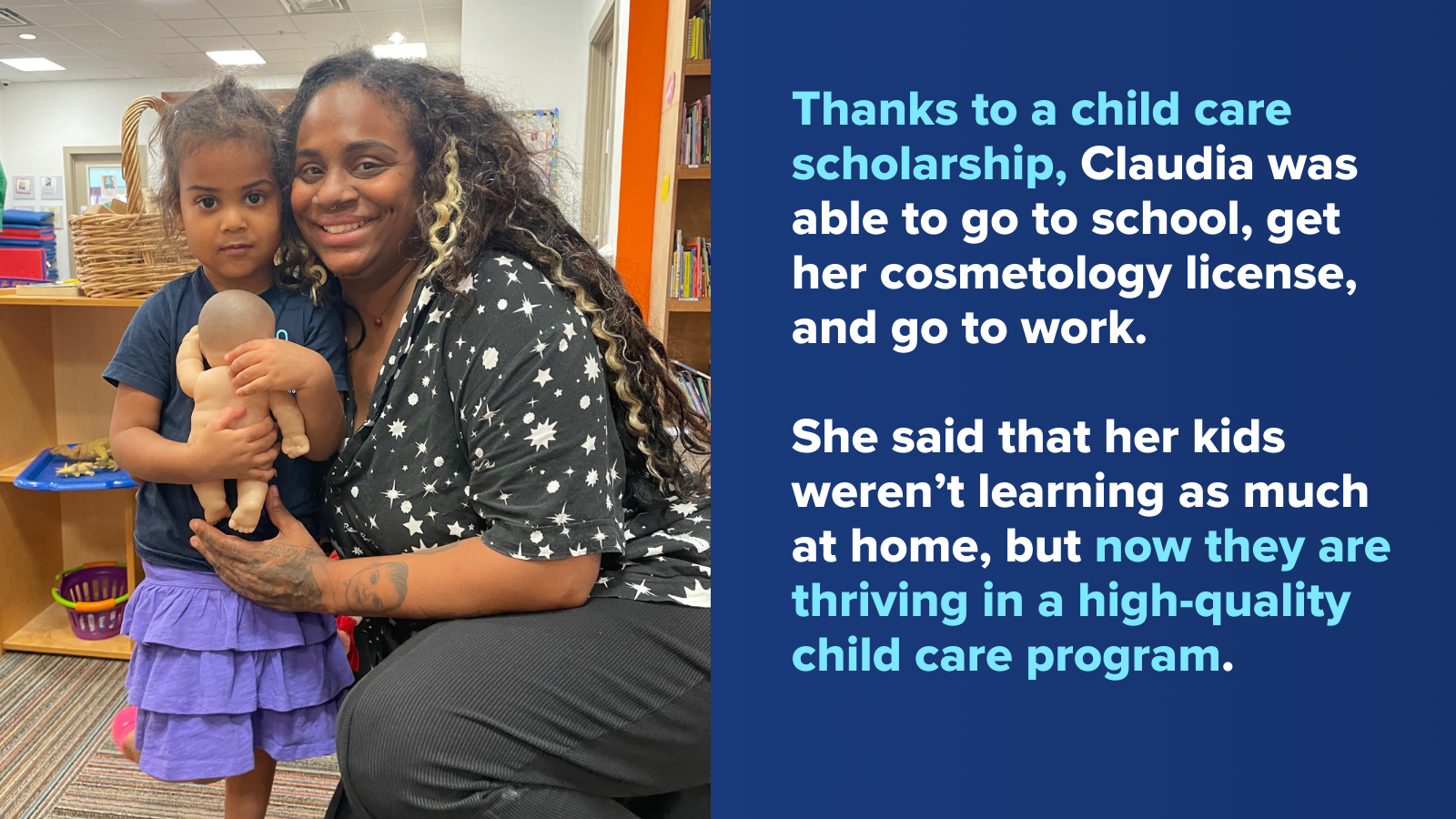
During the 2025 legislative session, the decisions that Texas lawmakers make regarding the state budget will have a profound impact on the lives of millions of children across Texas. There are a number of urgent needs for Texas children. For example, the Legislature should ensure that kids who are eligible for key programs — such as child care scholarships, Early Childhood Intervention (ECI) for toddlers with disabilities, and Medicaid health insurance — can get enrolled in a timely fashion. It will also be important for the Legislature to invest in targeted services such as youth mental health programs that help keep kids out of foster care, for example. Additionally, there will be a significant debate about boosting the basic funding formulas for students in pre-k through 12th grade after years of inflation have eroded school districts’ ability to meet student needs. Fortunately, the Legislature is expected to have a large treasury balance available to invest in meeting the needs of Texas kids and families.
State agencies recently released their budget requests, formally known as Legislative Appropriations Requests (LARs), for Fiscal Years 2026-2027. Those LARs will guide state leaders as they craft a first draft of the budget bill between now and January 2025 and revise the budget during the 2025 session.
Our team has reviewed the LARs and identified a few key takeaways outlined below. For more details, take a look at our testimony on the HHSC budget request, our testimony on the TWC budget request, and our testimony on the DSHS budget request.
We’re encouraged by a number of requests from state agencies, such as funding for youth mental health services that help keep kids out of foster care, funding for the Medicaid enrollment system, and funding for ECI services for toddlers with disabilities.
However, some of the state agency requests — regarding child care funding, for example — fall short.
We agree with the following requests from state agencies and urge the Legislature to support them:
- Funding to improve access to mental health services for children, including youth with more complex needs and those at risk of entering foster care (Exceptional Item #12 in HHSC’s LAR): The request for a $61.9 million increase for the biennium will support Youth Empowerment Services (YES), additional Youth Crisis Outreach Teams, and recommendations from the Children’s Statewide Strategic Plan, which will be published in December 2024. (Read more here.)
- Funding to support youth with high needs in foster care (Exceptional Item #4 in DFPS’s LAR): The requested $15.1 million will expand mental health resources for children placed with kin in Community-Based Care Regions, improve the quality of residential treatment for youth in care, and expand the Youth Advocacy Program (YAP) pilot currently available in Regions 6 and 7. Investments are critical to ensure youth with more intensive mental health challenges have family-like settings so they can heal, have stability, and thrive.
- Funding to improve the state’s Medicaid Eligibility and Enrollment system (Exceptional Item #2 in HHSC’s LAR): Currently, many eligible children are unenrolled, uninsured, and missing out on health care because the Texas Medicaid enrollment system does not work in an efficient, orderly, and timely manner. There is a backlog of more than 200,000 unprocessed Medicaid applications, leaving families to wait three to four months for their application for health coverage to begin processing. Currently, applications and renewal forms submitted online must be manually re-entered by staff, leading to unnecessary delays that could be minimized if HHSC used technology that did not require staff to manually input information. This exceptional item request of $300 million in state funds ($809 million All Funds) would cover additional eligibility workers and IT support teams, improvements to Texas’ Integrated Eligibility System (TIERS), changes to YourTexasBenefits.com and the mobile app, and other technology enhancements. (Read more.)
- Funding for Early Childhood Intervention (ECI) to serve infants and toddlers with disabilities (Exceptional Item #5 in HHSC’s LAR): The request for an additional $18 million is needed to account for an anticipated 3.5% increase in the number of infants and toddlers enrolled in ECI. If this exceptional item is not adopted, the state would undermine the progress the Legislature made last session and decrease per-child funding from $452 in 2025 to $424 for the 2026-27 biennium. In addition to providing the $18 million requested by HHSC, we are also calling on the Legislature to increase per-child funding. (Read more.)
- Funding to improve child mortality and morbidity due to congenital syphilis (Exceptional Item #4 in DSHS’s LAR). Texas has seen a dramatic spike in congenital syphilis, which a mother transmits to her infant during pregnancy or at delivery. This funding is essential to ensure more providers can accurately diagnose and treat this preventable disease to stop the spread and minimize its effects in the long term. The request covers an additional $13.3 million over the biennium and 25 FTEs at DSHS.
- Funding for the Maternal Mortality Review System (MMRS) to speed up data review and inform interventions that can save Texas moms’ lives (Exceptional Item #8 in DSHS’s LAR). Building on the Legislature’s great investment last session in MMRS, this request is for an additional $9.9 million and 7 FTEs needed to expand the MMRS’s capabilities, ensure there is an integrated tracking system for maternal mortality cases, and improve the timeliness of the Maternal Mortality Review Committee’s analysis and recommendations. (Read more.)

- Funding to provide child care scholarships to currently eligible families who are stuck on the waitlist (TWC): The agency’s request will allow Texas to draw down federal child care funding, but we believe Texas must invest state funding to serve more eligible families. With a current waitlist of over 86,000 children, the Legislature should take a meaningful step and provide state funding for TWC to allocate at least 10,000 more scholarships to low-income, working families. In the last two years, red states around the country have invested significant state funds to serve more eligible families in the Child Care Services program. (Read more.)
- Funding to sustain the Texas Family First Pilots to help families stay together safely and avoid foster care (DFPS): The agency request only includes a placeholder. The Pilots are funded through federal Family First Transition Act dollars, but funds expire in October 2025. State investment in the TFF Pilots – with opportunities for federal matching funds – will support the ongoing work that DFPS has started in partnership with Community-Based Care contractors to support children at risk of entering foster care and their caregivers. (Read more.)
- Funding to strengthen and expand coordination within the state’s mixed-delivery early childhood education system (TEA): We are glad the administrator’s statement of TEA’s LAR highlights the Tri-Agency Workforce Initiative, which seeks to strengthen the state’s mixed-delivery early childhood system. However, the agency’s request does not reflect any new investments to further pre-k partnerships. Despite the Legislature’s support of pre-k partnerships between schools and community-based child care providers and the potential benefits for families, pre-k partnerships remain exceedingly rare and difficult to sustain. Expanding partnerships requires financial support for participating child care providers, improved technical assistance in securing partnership agreements, and supporting policies that help communities expand access to pre-k.
- Funding to support the recommendations on Teacher Preparation and Strategic Compensation (TEA). TEA’s LAR includes two placeholder exceptional items (Exceptional Items #3 and #4) for educator preparation and strategic teacher compensation. Ensuring teachers are highly qualified and prepared to meet the needs of their students leads to higher teacher retention and better outcomes for students. We agree that the Legislature should prioritize strategies outlined by the Teacher Vacancy Taskforce that incentivize certifications for qualified teachers in hard-to-staff areas, particularly special education and bilingual education– which are vital for staffing effective pre-k through 3rd grade classrooms.
- Funding to support the recommendations of the Special Education Funding Commission (TEA). The Texas Commission on Special Education Funding Report recommended moving to a funding formula based on the intensity of services required to meet an individual student’s needs. As the Legislature considers the Commission’s recommendations this session, TEA includes a placeholder exceptional item request (Exceptional item #2) for the needed appropriations to implement this restructuring of special education funding. The Legislature should ensure that Early Childhood Special Education (ECSE) services for three- and four-year-olds are adequately funded and accessible in the child’s least restrictive environment, including community-based early childhood settings.
We look forward to working with the Legislature and our partners to ensure the state budget meets the needs of Texas kids and families!



